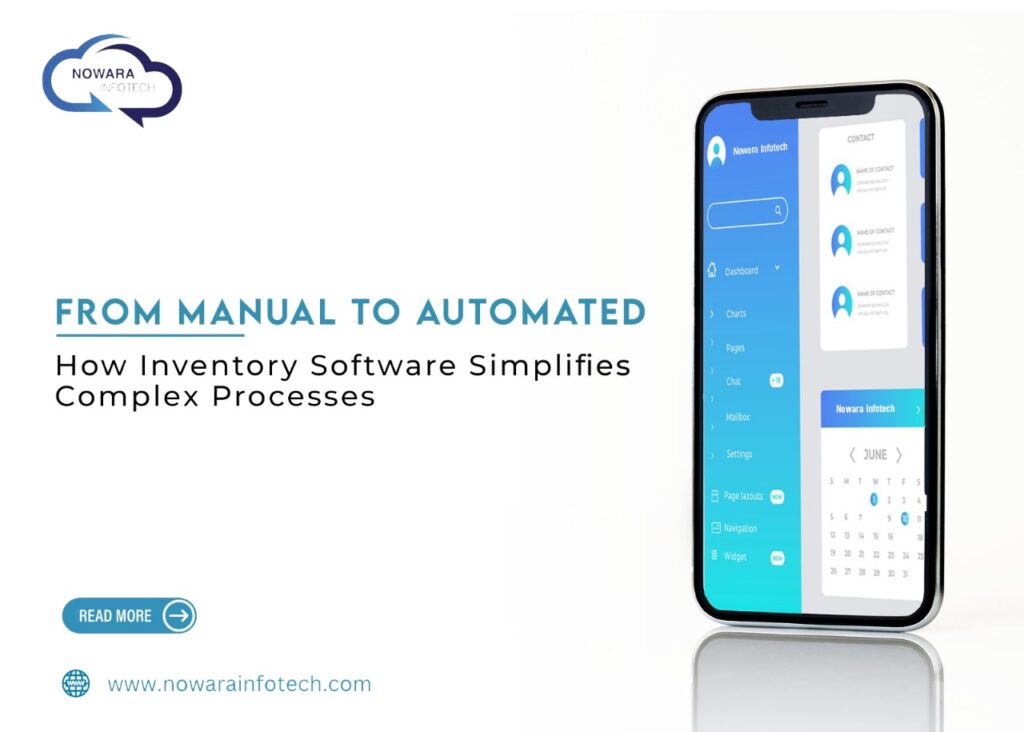Inventory management refers to the process of overseeing and controlling a company’s inventory levels, including the storage, monitoring, and movement of goods or materials. It encompasses various activities such as ordering, storing, tracking, and managing inventory to ensure optimal levels are maintained to meet customer demand while minimizing costs and maximizing efficiency.
Consider this around 74% of businesses have encountered delays in shipments, while 48% are reassessing warehouse locations due to shifting trade patterns. Moreover 72% of retailers are gearing up to transform their supply chains with real-time visibility enabled by automation and analytics. Additionally, a staggering 85% of distributors in the chemical industry have reported out-of-stock shortages. These figures highlight the critical role of inventory management ERP systems in addressing complex challenges and driving business success.
The benefits of the ERP inventory management module include:
- Improved inventory accuracy and visibility: The module provides real-time tracking and monitoring of inventory levels across multiple locations, ensuring accurate stock counts and visibility into inventory movements.
- Enhanced demand forecasting and planning: By analyzing historical data and market trends, the module facilitates better demand forecasting, enabling businesses to anticipate customer demand and adjust inventory levels accordingly.
- Streamlined procurement and replenishment processes: The module automates procurement workflows, streamlining the purchasing process and ensuring timely replenishment of inventory to prevent stockouts or overstock situations.
- Optimized inventory levels and reduced carrying costs: Through efficient inventory management techniques such as just-in-time (JIT) inventory and safety stock optimization, the module helps businesses maintain optimal inventory levels while minimizing carrying costs and excess inventory.
- Increased efficiency and productivity: By automating routine inventory tasks such as stock counts, order processing, and inventory reconciliation, the module frees up time and resources, allowing employees to focus on more strategic activities, thereby improving overall efficiency and productivity.
- Better decision-making through real-time insights: The module provides comprehensive analytics and reporting capabilities, offering valuable insights into inventory performance, trends, and key performance indicators (KPIs). These insights empower decision-makers to make informed choices and drive continuous improvement in inventory management processes.
What are the 4 types of inventory management systems?
- Perpetual Inventory System: This system maintains continuous and real-time tracking of inventory levels by updating records with each transaction. It provides instant visibility into stock levels and helps prevent stockouts or overstocking.
- Periodic Inventory System: With this approach, physical counts of inventory are conducted at regular intervals, such as weekly, monthly, or annually. These counts are then compared to the recorded inventory levels to identify any discrepancies and update inventory records accordingly.
- Just-in-Time (JIT) Inventory System: JIT inventory management aims to minimize inventory holding costs by ordering and receiving inventory only when needed for production or sales. This system relies on accurate demand forecasting and close coordination with suppliers to ensure the timely delivery of goods.
- ABC Inventory Classification System: This method categorizes inventory items based on their value and importance to the business. Items are classified into three categories: A, B, and C. Category A items are high-value items that represent a smaller portion of inventory but contribute a significant portion of revenue. Category B items have moderate value and sales importance, while Category C items are low-value items with minimal impact on revenue. This classification helps prioritize inventory management efforts and resource allocation.
Best ERP for inventory management: Microsoft 365 Business Central
Microsoft 365 Business Central stands out as one of the best ERP solutions for inventory management. With its robust features and seamless integration capabilities, Business Central offers businesses a comprehensive solution for managing their inventory operations effectively. From inventory tracking and replenishment to demand forecasting and reporting, Business Central provides businesses with the tools they need to optimize their inventory processes and drive growth.
How can ERP applications improve inventory management?
ERP applications can improve inventory management by automating manual processes, providing real-time visibility into inventory levels, optimizing inventory turnover, and enabling better decision-making through advanced analytics and reporting capabilities. By streamlining inventory operations and reducing manual errors, ERP applications help businesses improve efficiency, reduce costs, and enhance overall productivity.
Nowara Infotech: Your Certified Partner for Microsoft ERP Solutions
ERP applications play a crucial role in improving inventory management by providing businesses with enhanced accuracy, visibility, and efficiency in their inventory operations. With real-time insights into inventory levels, streamlined procurement processes, and optimized inventory levels, ERP systems enable businesses to meet customer demand effectively while minimizing carrying costs and maximizing productivity.
As a certified partner of Microsoft and a leading provider of ERP solutions, Nowara Infotech offers businesses cutting-edge software solutions tailored to their specific needs. With expertise in implementing and customizing Microsoft 365 Business Central, Nowara Infotech helps businesses streamline their inventory management processes and unlock their full growth potential.
Overall, transitioning from manual to automated inventory management processes is essential for modern businesses looking to stay competitive in today’s market. By leveraging advanced inventory ERP software solutions, businesses can optimize their inventory operations, improve efficiency, and drive sustainable growth. With the right technology partner like Nowara Infotech, businesses can embark on their journey towards digital transformation and unlock new opportunities for success.

